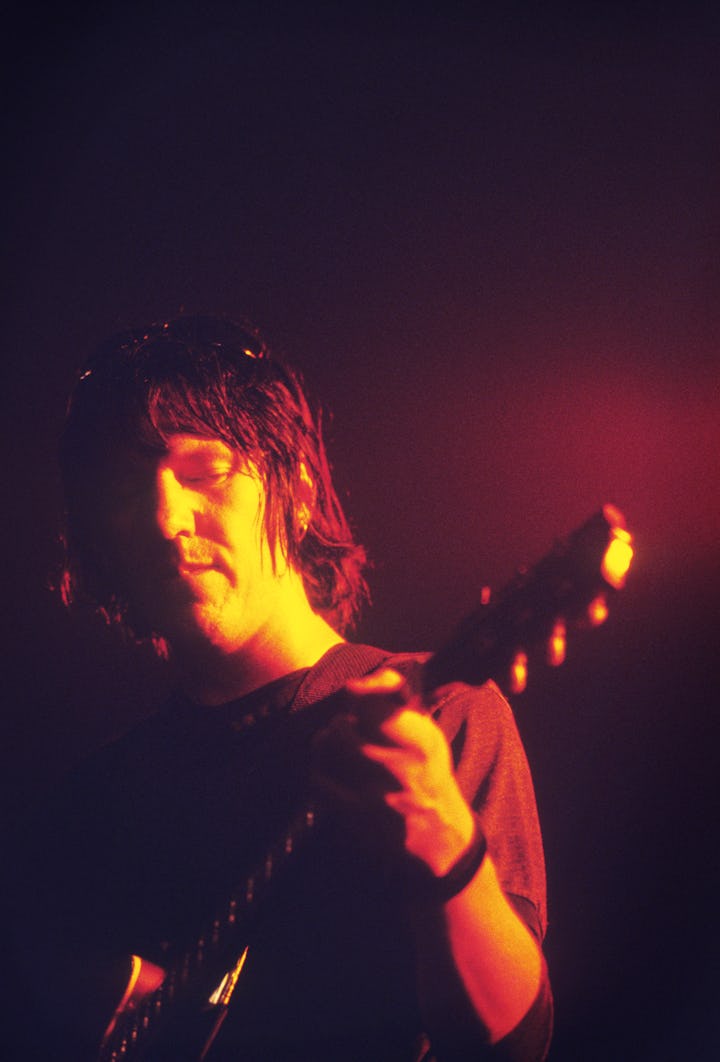25 Years Ago, One Album Was The Fusion Of Sad Indie Rock And Perfect Pop
Elliot’s Smiths XO was the beginning of a new phase of indie rock.

Before the album XO, it was both easy and lazy to call Elliot Smith a folk singer. Painted as a coffee house dwelling troubadour, Smith’s sound prior to XO was hard to define. In a sense, he hadn’t quite arrived at that “Elliot Smith” quality we think of today. But approximately one minute and thirty seconds into his first major label debut, XO, Smith changed the game with a shocking wall of sound. At the time, fans and his musical peers were confused and even put off. Now it’s very clear that the way XO was not afraid to embrace pop and production would change Indie Rock forever. Smith’s XO dropped on August 25, 1998, and nothing has been the same since.
If your record collection is more than just a collection of wax, but, perhaps, a living history, then XO is a pivot point in how everyone thinks about Indie Rock, and no contemporary musical education is complete without understanding this brilliant album.
Elliott Smith started making music as early as ten. The band he started in college, Heatmiser, was a popular rock/punk band in the Portland scene that ultimately flirted with major label success on Virgin’s Caroline Imprint. By the mid-90s he stepped away from Heatmiser and found his stride as a lo-fi solo indie artist, creating some of the most confusingly brilliant songs, usually with just a four-track and acoustic guitar.
Elliot Smith looking very Elliot Smith-y.
You can easily argue that his forever influence on indie and pop music started way before XO, and you would be right. No one was making the kind of music he made on Roman Candle (1994), Elliott Smith (1996), and Either/Or (1997). The impressionistic lyrics were laced with metaphor, switching between first and third person, leaving the listener to interpret. It was impressive to all how much he could convey with just a few words or lines.
So, by the time XO came around, he was coveted by indie music fans and championed by other artists. He made quiet songs that were actually wildly complex and able to communicate a vast range of emotions. The people that “got it” were all in. Looking back, Elliott Smith’s progression was always to make the songs he wanted to make, regardless if it was considered cool. Being the quiet guy with the guitar has rarely been the coolest thing. But as soon as he won people over with that exact setup, it was time to pivot again. When making XO, it was almost like “Haters get ready, we are going for Baroque.”
Starting with the big bang on “Sweet Adeline,” the record continues to surprise listeners who were expecting the gritty basement sound. Everything about XO was just more. For the first time, he had carte blanche over major label resources and the arrangements he incorporated would go on to change what indie rock could be.
Smith delivers fuller and more complex pop arrangements on nearly every track. He has always layered his vocals, but it’s thicker on “Tomorrow, Tomorrow”. The strings on “Waltz #1” add a heartbreaking layer of loneliness and “Question Mark” even adds a horn that somehow sounds like a question mark. “Bottle Up And Explode” and “Bled White” are just straight-up bangers. The sweeping piano solo on “Pitseleh” creates that feeling of nostalgia not unlike the outro of “Layla”, just with more emotion. “I Didn’t Understand” would have been home on the Beach Boys' “Pet Sounds” and “Baby Britain” shows his obvious love for the Beatles.
The lyrics on XO continue to exemplify Smith’s brilliance. The way he observes a karaoke scene in “Waltz #2 (XO) as a metaphor for his feelings about his mother and stepfather is pure genius (as is that entire song). Even with all the pop flourishes, there are still lines that will stop the listener in their tracks like “They took your life apart and called you failures art” and “Hate will sing the ending that love started to say.”
Elliot Smith on stage in Belgium in 1998.
Elliott Smith proved with XO that you didn’t need to sacrifice a song’s emotional intelligence to make it more complex. A song could be both. An artist can be more than one thing and so can pop music. It’s not selling out to change your sound to take the next step in your creative path.
Today’s musicians took Smith’s lead and are not afraid to take all things available to make their art. Bright Eyes and Ben Gibbard’s various projects are two obvious examples. They changed their sounds and got bigger with time. The instruments and arrangements Smith used in XO also broadened the indie rock genre. It made it easy for projects like Beirut, Jens Lekman, and Andrew Bird to fit under the indie rock umbrella. Younger artists today, like Phoebe Bridgers, Billie Eilish, Frank Ocean, and DIIV mention Smith as a big influence. Arlo Parks has an Elliott Smith tattoo. Even Madonna — who said “shocker” before announcing “My Heart Will Go On” as the 1998 Best Song Oscar Winner over Smith’s “Miss Misery” — has since covered his song “Between the Bars” on multiple occasions.
Great artists and bands today proudly make smart, sad songs and embrace pop without getting dismissed as sad sacks or sellouts like Elliott Smith did. It’s probably because he taught us it was okay.
This article was originally published on